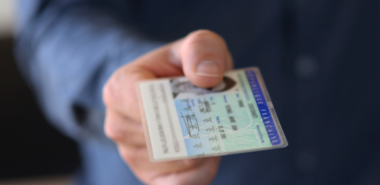
Traceability is a little-recognized aspect of the digital transformation of our society.
Being able to know the history, location, or application of an item by means of documented recorded identification already lies at the heart of food, banking and e-commerce industries. Legal frameworks, obligations, labels, standards and technologies are in place to guarantee a level safety and trust that the public believes.
Is it time that we apply these safeguards and processes to our digital lives?
The concept of traceability has a powerful role in the protection of civil liberties and identity as well as the social contract with those we interact with online.
Twenty-first century society will be fundamentally mobile and traceable, which should deliver immediate benefits.
For example:
- health authorities will be able to quickly and accurately determine the causes of food contamination, reducing the potential danger to the public at large
- companies will gain extra tools to comply with regulation and compliance, aid competition and improve quality management
Traceability can also contribute to the development of a trusted digital world for public authorities that ultimately benefits citizens.
A secure digital identity deployed at a population level, as many countries are already doing or planning to do in 2017, is capable of ensuring legal protections and means of redress are respected. The creation of an electronic identity with digital signatures, time stamping and proper archiving each play their part in forming strong individual links in the chain of trust.
Moves are already underway in parts of the world exploring processes that make our digital interactions more transparent—especially when it comes to matters of government-issued electronic IDs.
In Belgium, Estonia and Portugal, public authorities are required to disclose any electronic records maintained on individual citizens. Belgian citizens can also contest whether their government has the right or legal obligation to maintain certain records. Here traceability serves to heighten citizen awareness of government and foster civic behavior and self-regulation.
The openness of our digital world (through the advent of the Internet) combined with globalization has led to a shift in how we approach control.
What’s the story here?
- In the past things were strictly regulated a priori with no regard for experience.
- Now we live in a posteriori world that is largely deregulated but controllable through actions.
The overriding consequence of this change has led to a major cultural transformation where systematic control is making way for responsibility associated with traceability.
Trust in an uncertain world
Traceability consists of being able to reliably answer the questions who, what and when. The same should happen in the digital world.
One of the essential keys to trust and the traceability associated with it, consists of being able to replay an event a posteriori. In the event of failure, we should be able to analyze the faults, attribute responsibilities and where necessary bring insurance mechanisms into play.
Fundamentally, there is nothing new here.
Accountants and lawyers have long practiced the art of auditing and attributing responsibility. What is new are the efforts currently being undertaken to make this work in a digital, mobile and online world.
It’s the essence of the EU’s eIDAS regulation (trusted services and eID) now in place or the US Government initiative named National Strategy for Trusted Identities in Cyberspace.
Digital identity as the key link in the chain of trust
What is primarily at stake in the digital transformation of our exchanges is the legal continuity of rights across all media. This means ensuring that the digital domain benefits from the same legal protections as the offline world.
Many would argue that this is the price we have to pay to be able to achieve real administrative simplification.
But more than this,
The open world we all want to live in can only exist with traceability at its core.
The concept, I would argue, is the best guarantee we have to develop and protect civil liberties. This is because it allows each of us to freely exercise our responsibility of enterprise and self-expression.
This increased freedom becomes a reality if traceability is practiced in conjunction with balanced social cohesion.
In other words the citizen regains the right of access to the traces concerning himself or the right to influence such traces under conditions determined by law and community.
Transparency is thus the necessary corollary of the “positive” deployment of traceability where the citizen can freely access records against his or her name, and consult them to gain control over the protection of his or her own rights. This function may come to be delegated to “Trusted Third Party” public bodies responsible for the protection of privacy.

Addressing misgivings
Traceability is a necessary part our society. It guarantees the best possible form of regulating the relationship between the free individual and the society.
It is the natural ally of the law and of that which is most precious to us in genuinely teaching us the meaning of civic responsibility. It does not seek to prevent transgressions in any way, but makes those who knowingly commit transgressions accountable for any damages that they may cause to others.
There are those who believe that this idea only works when you have a benevolent government that does not seek to overtly control its citizens.
And of course there have been reported moves by China to give each citizen a social credit score based on their on- and offline activity. However, the flipside to this, is that the Internet is largely anonymous—something that has let many people get away with terrible online abuse, blackmail and fraud.
It’s a complex issue but in time, we could see society make traceability a part of a civic education that teaches people from an early age to understand and manage their own digital footprints. This must necessarily be coupled with the right for these traces to be wiped if no legal consequences are noted within a to-be-determined timeframe.
And if we’re being optimistic, this eminently modern and cohesive idea of openness now just needs to be taken to its logical conclusion with the emergence of fair and sustainable society.
What are your thoughts on traceability? Let us know in the comments section below.


